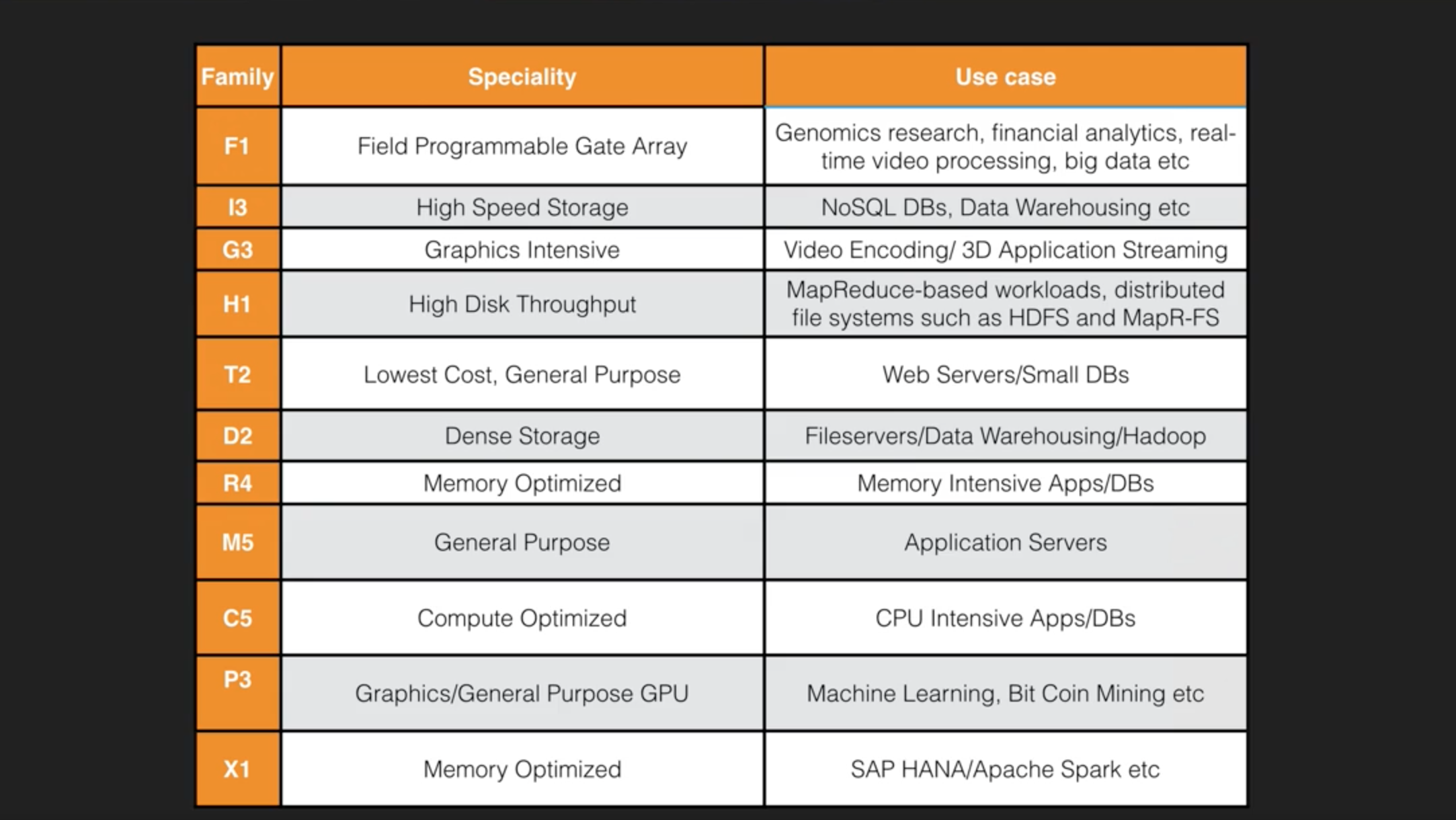目錄表
Chapter 5-1: EC2 101
0x00 What is EC2
Amazon Elastic Compute Cloud(Amazon EC2) is a web service that provides resizable compute capacity in the cloud.
Amazon EC2 reduces the time required to obtain and boot new server instances to minutes, allowing you to quickly scale capacity, both up and down, as your computing requirements change.
Amazon EC2 changes the economics of computing by allowing you to pay only for the capacity that you actually use.
Amazon EC2 provides developers the tools to build failure resilient applications and isolate themselves from common failure scenarios.
0x01 EC2 Options
- On Demand: allows you to pay the fixed rate by the hour (or by the second) with no commitment.
- Reserved: provides you with a capacity reservation, and offer a significant discount on the hourly charge for an instance. 1 Year or 3 Year Terms.
- Spot: enable you to bid whatever price you want for instance capacity, providing for even greater savings if your applications have flexible start and end times.
- Dedicated Hosts: Physical EC2 server dedicated for your use. Dedicated Hosts can help you reduce costs by allowing you to use your existing server-bound software licenses.
On Demand Instance:
Perfect for users that want the low cost and flexibility of Amazon EC2 without any up-front payment or long-term commitment.
Applications with short term, spiky, or unpredictable workloads that cannot be interrupted.
Applications being developed or tested on Amazon EC2 for the first time.
Reserved Instance:
Applications with steady state or predictable usage.
Applications that require reserved capacity.
Users can make up-front payments to reduce their total computing costs even further.
- Standard RIs (Up to 75% off on-demand)
- Convertible RIs (Up to 54% off on-demand) feature the capability to charge the attributes of the RI as long as the exchange results in the creation of Reserved Instances of equal or greater value.
- Scheduled RIs are available to launch within the time window you reserve. This option allows you to match your capacity reservation to a predictable recurring schedule that only requires a fraction of a day, a week or a month.
Spot Instance:
Applications that have flexible start and end times.
Applications that are only feasible at very low compute prices.
Users with an urgent need for large amounts of additional computing capacity.
Dedicated Hosts:
Useful for regulatory requirements that may not support multi-tenant virtualization.
Great for licensing which does not support multi-tenancy or cloud deployments.
Can be purchased On-Demand (hourly).
Can be purchased as a Reservation for up to 70% off the On-Demand price.
0x03 EC2 Instance Types
0x04 What is EBS
Amazon Electric Block Storage (Amazon EBS) allow you to create storage volumes and attach them to Amazon EC2 Instances.
once attached, you can create a file system on top of these volumes, run a database, or use them in any other way you would use a block device.
Amazon EBS volumes are placed in a specific Availability Zone, where they are automatically replicated to protect you from the failure of a single component.
0x05 EBS Volumn Types
General Purpose SSD (GP2):
General purpose balances both price and performance.
The ratio for 3 IOPS per GB with up to 10000 IOPS and the ability to burst up to 3000 IOPS for extended periods of time for volumes at 3334 GiB and above.
Provisioned IOPS SSD (IO1):
Designed for I/O intensive applications such as large relational or NoSQL databases.
Use if you need more than 10000 IOPS.
Throughput Optimized HDD (ST1):
Big Data
Data warehouses
Log processing
Cannot be a boot volume
Cold HDD (SC1):
Lowest Cost Storage for infrequently accessed workloads
File Server
Cannot be a boot volume.
Magnetic (Standard):
Lowest cost per gigabyte of all EBS volume types that is bootable.
Magnetic volumes are ideal for workloads where data is accessed infrequently, and applications where the lowest storage cost is important.
